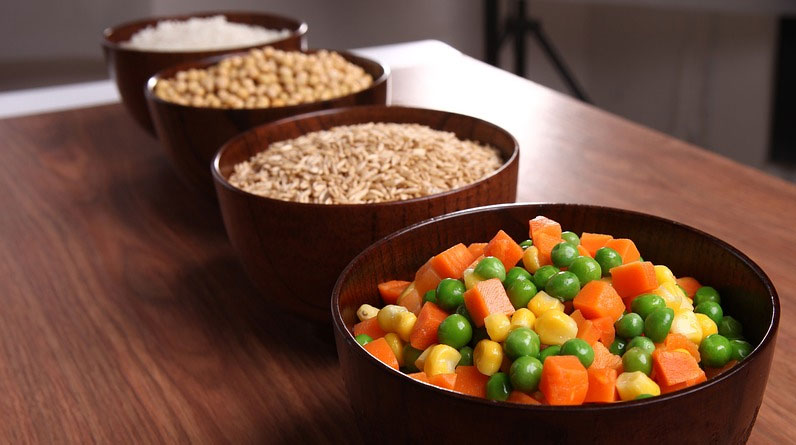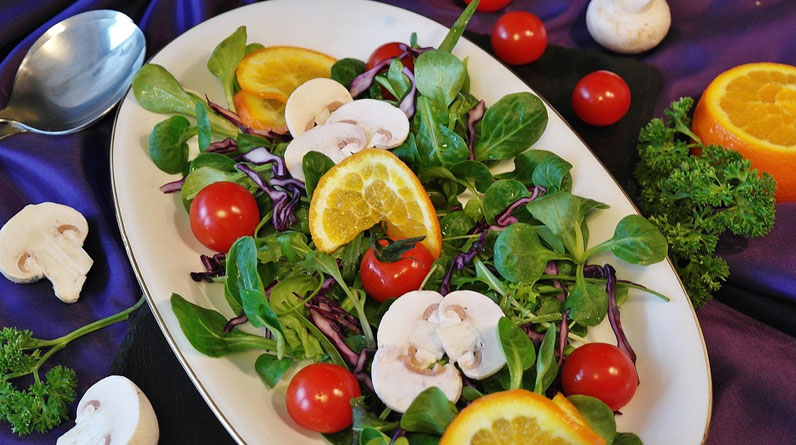
Understanding The Plant-Based Diet
A plant-based diet has been gaining popularity throughout the world. It’s not uncommon to see celebrities, influencers, and even your friends posting photos of their plant-based meals on Instagram.
However, you may be wondering what exactly is a plant-based diet. A plant-based diet refers to a type of eating plan that focuses on fruits, vegetables, nuts, and legumes – or in other words, plants.
A plant-based diet has many health benefits including lowering your risk of heart disease and Type 2 diabetes. The healthy eating plan can also help increase your intake of vitamins, minerals, and fibre; all things that can often be found in abundance in plant foods.
If you’re looking for a way to improve your health by reducing animal fats and increasing the amount of fruits and veggies you eat – then read on for everything you need to know about going plant-based!
What to Eat On a Plant-Based Diet?
A plant-based diet includes a variety of plant-based foods, mostly vegetables and fruits, nuts, and legumes. What you choose to eat will vary depending on your personal health goals.
To get a better sense of the kinds of foods you’ll be eating on a plant-based diet, take a look at the following list:
Fruits – Apples, Oranges, Strawberries, Peaches, Pears, Bananas, Blueberries, Cherries, Grapes, Kiwi, Limes, Lemons, Mangoes, Oranges, Papayas, Pears, Raspberries, Rhubarb, Tomatoes, Watermelon
Vegetables – Artichokes, Asparagus, Bell peppers, Black beans, Bok choy, Broccoli, Brussel sprouts, Cabbage, Carrots, Cauliflower, Celery, Chickpeas, Corn, Cucumbers, Eggplant, Kale, Kohlrabi, Okra, Parsnips, Potatoes, Pumpkin, Radishes, Rutabaga, Scallions, Spinach, Sprouts, Squash, Sweet potatoes, Turnips, Watercress
Nuts – Almonds, Brazil nuts, Cashews, Hazelnuts, Peanuts, Pecans, Pistachios, Walnuts
Legumes – Black beans, Kidney beans, Pinto beans, Navy beans, Chickpeas, Lentils, Peas
Vegan vs. Plant-Based: What’s the Difference?
While vegan and plant-based diets share many of the same principles, they are distinct terms with unique meanings. A vegan diet is defined as a diet that avoids all animal products. This includes foods like eggs, dairy products, and honey, as well as clothing or other items that might be made with animal by-products.
A plant-based diet can be described as a vegan diet that focuses on eating more plants rather than just avoiding animal products. The most important thing to remember is that veganism and plant-based eating are not the same thing. A plant-based diet is a type of plant-based eating plan, but veganism is more than just a diet. Vegans avoid all animal products, including clothing and other items that might be made with animal by-products.
The Health Benefits of a Plant-Based Diet
There are many benefits of a plant-based diet, including reduced risk of chronic diseases, increased energy levels, and better digestion.
Let’s take a look at some of the main benefits of eating a plant-based diet.
- Reduces your risk of chronic diseases – The most obvious health benefit of eating a plant-based diet is how it can reduce your risk of chronic diseases. Eating a healthy diet that is rich in fruits and vegetables can help reduce your risk of heart disease and Type 2 diabetes.
- Helps you lose weight – Eating a plant-based diet can also help you to lose weight, especially if you replace unhealthy fats and refined carbohydrates with high fibre foods like fruits and vegetables.
- Increases your energy levels – A plant-based diet can also be an energy booster thanks to a high fibre content. Eating a lot of high fibre foods can help improve your digestion and boost your energy levels thanks to all that extra fibre.
- Better sleep – A high-fibre diet can also help you sleep better at night. Similar to having a low glycemic index (GI) diet, eating high fibre foods can help to slow down your digestion so you’re ready to hit the sheets earlier!
- Better brain health – Eating a healthy diet rich in fruits and vegetables can also help you to avoid mental health issues like Alzheimer’s and other types of dementia.
Going vegan can help you lose weight, suggests a new study published in the journal Nutrients.
The study of 120 participants found that those who followed a plant-based diet lost more weight than those on a standard American diet, even though both groups were calorie-restricted.
On average, those in the plant-based group lost over 5 pounds more than those in the standard American diet group after 12 weeks.
What’s more, the plant-based group also lost more body fat and inches from their waists.
How to Go Plant-Based?
If you’re interested in going plant-based, the first thing you should do is start eating more plants. You don’t have to completely eliminate animal products from your diet overnight, but try adding more fruits, vegetables, and other plant foods to your daily meals.
You can also try to avoid processed foods and refined carbohydrates by opting for whole grains, legumes, and other plant-based foods. Once you’ve started eating more plants, you can decide if you want to take the next step and make your entire diet plant-based.
Drawbacks of a Plant-Based Diet
If eating more plants is so good for you, why would anyone want to avoid them altogether? There are several drawbacks of a plant-based diet, including lower protein intake, a greater risk of B12 deficiency, and potential digestive issues. Let’s take a look at some of the potential drawbacks of a plant-based diet.
- Low protein intake – While many plant-based foods are rich in protein, it’s important to keep in mind that not all plant foods are complete proteins. This means that they lack certain essential amino acids your body needs to stay healthy.
- Risk of B12 deficiency – Another drawback of a plant-based diet is that many plant foods contain very little B12. This is important to keep in mind when trying to meet your daily nutritional needs as B12 is essential for energy and mental health.
- Digestive issues – Eating a plant-based diet can also lead to digestive issues like bloating, cramping, and other uncomfortable digestive symptoms.
Bottom Line
A plant-based diet is a healthy way of eating that can reduce your risk of chronic diseases like heart disease and Type 2 diabetes. However, a plant-based diet can also be rich in nutrients and protein, but it is important to get these nutrients from a variety of sources to avoid B12 deficiency. Additionally, it’s important to note that even though a plant-based diet is healthy, it’s important to watch your caloric intake to avoid gaining weight.



